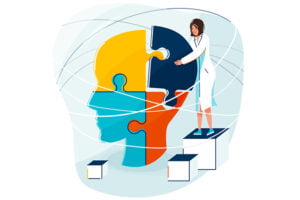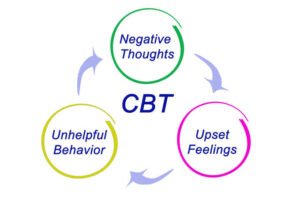Contents
- 1 Therapy And Mental Health
- 2 How Therapists Treat Mental Health Problems?
- 3 How A Therapist Treat Depression/Addiction?
- 4 Psychotherapy For Mental Health Disorders
- 5 How Does Therapy Affect Those Living With These Disorders?
- 6 One-step Therapy Plan
- 7 Therapist’s Requirement From Patients
- 8 Goal Of Therapy
- 9 Types OF Therapy, Therapists Provide For Mental Health
- 10 How To Get Most Out Of Therapy?
- 11 Conclusion
Therapy And Mental Health

From depression to addiction, there are many disorders that can affect a person’s life. And function with therapy as their main form of intervention. Let us explore how the work of therapists affects those who live with these diseases and what they can do to help them recover.
Therapists help people with mental health problems. Some of the most common diagnoses are depression, anxiety, and addiction. A therapist will work with patients to find the root of their problem and provide treatment for it. The types of treatments vary depending on the disorder but can include talk therapy or medications.
Therapy is the main form of intervention for mental health diseases because it’s usually the only way that someone can find out what is causing depression or addiction. Without therapy, people who are suffering from these conditions would not be able to understand their thoughts, feelings, and behaviors. Therapy also teaches people how to cope with difficult situations. Because many mental health problems stem from not knowing how to deal with these situations. It also helps people develop better relationships by teaching them how to communicate better, resolve conflict in healthy ways, and change their negative thinking patterns.
Therapy also helps people find out what they might need in order to cope with their mental health issues. A therapist is able to help a person deal with the root cause of their depression or addiction. It would help them not become depressed or addicted again.
How Therapists Treat Mental Health Problems?
A therapist is someone who provides therapeutic treatment to people who are suffering from mental health problems. A therapist can help people with mental health problems by helping them become more aware of their thoughts, feelings, and behaviors. They can also help people to create a plan for coping with difficult situations. Therapists often assist people in identifying the root cause of their mental health issues. And work with them on finding ways to come up with solutions that will work for them.
People who are therapists are helpful because they help people with mental health problems to see what the root cause of their problems is. They also assist people in finding solutions to these causes, which is very important. Because usually, mental health issues stem from something deeper than just the problem itself. They help by talking with them, showing them new ways to respond to the problems and events in their lives. And by finding ways to help them deal with these issues.
How A Therapist Treat Depression/Addiction?

A therapist can help someone with depression or addiction by helping them to find coping methods that work for them. For example, a therapist might find different ways for their client to engage in physical activity. Or they may teach them how to develop healthier relationships. A therapist is also able to answer some tough questions about addiction and explore various options for treatment.
They can also teach people how to avoid becoming depressed again. They might also provide guidance for anyone who is dealing with a friend or family member who has depression or addiction issues.
Therapists are often the first people that you see who really listen to what you have to say which is why they are so beneficial. They are not afraid of talking openly about things that some people might be embarrassed about. This willingness to talk openly helps clients feel more at ease. And eventually, start opening up on their own without too much prodding from the therapist.
Psychotherapy For Mental Health Disorders
 Psychotherapy works by helping people understand their thoughts, feelings, and behaviors. It also helps people to create a plan for coping with difficult situations that they might encounter in their lives. Psychotherapy can help people avoid becoming depressed or addicted again by helping them find the root cause of these issues. Additionally, psychotherapy helps improve relationships. Because it teaches people how to communicate better and resolve conflict in healthy ways.
Psychotherapy works by helping people understand their thoughts, feelings, and behaviors. It also helps people to create a plan for coping with difficult situations that they might encounter in their lives. Psychotherapy can help people avoid becoming depressed or addicted again by helping them find the root cause of these issues. Additionally, psychotherapy helps improve relationships. Because it teaches people how to communicate better and resolve conflict in healthy ways.
If you are asking yourself this question, then therapy might be the best option for you. Therapy is always a good choice. Because it allows you to talk openly about your thoughts and feelings with someone who isn’t afraid of discussing sensitive topics or embarrassing issues. Additionally, therapy can help you live a happy and healthy life.
How Does Therapy Affect Those Living With These Disorders?
Therapy has a positive effect on those living with these disorders because it can help them to learn how to better communicate and deal with their problems. They also teach patients how to develop healthy relationships. This can often be the root cause of many mental health issues. Therapy also teaches people to cope with life’s difficult situations by exploring different ways that they might respond or manage them. Therapy usually has one-time effects because it helps people better understand their thoughts and feelings. However, if someone does become depressed or addicted again. Then therapy can be a good option for them to explore as well.
One-step Therapy Plan
If you are looking to begin therapy, then your therapist will usually help you create a one-step plan. The first step of this plan usually includes figuring out what is triggering your mental health issue. Some therapists will just ask you to explore different aspects of the problem and see where that takes you. Other therapists might draw out a plan and assign objectives and goals for you to work on during each session.
The therapist usually asks questions about the patient’s life experience, family issues, relationship problems. And other issues that might help to understand what is causing your mental health issue. Therapists usually guide sessions by guiding you in a direction that they think will benefit you. It usually depends on where you want to go from the start. Because therapists will most likely ask you questions about your past, current situation, and future aspirations. They also might ask you how you think they can help and what the treatment is for.
Therapist’s Requirement From Patients
 Therapists usually require patients to be open and honest about their feelings and thoughts. Additionally, therapists will expect that you give it your all during each session. You will want to make sure that you let your therapist know if you don’t feel like coming to a session, because they will want to help you as much as possible.
Therapists usually require patients to be open and honest about their feelings and thoughts. Additionally, therapists will expect that you give it your all during each session. You will want to make sure that you let your therapist know if you don’t feel like coming to a session, because they will want to help you as much as possible.
Goal Of Therapy
The goal of therapy is usually to help you work through difficult situations and solve problems. Therapy also helps people with mental health issues cope with life’s daily stresses and develop positive relationships. Your goals could be to learn how to stop being dependent on drugs or alcohol, manage your bipolar disorder, or handle issues in your life.
Therapy might be the best option for you if you are struggling with mental health issues. Therapy can also help you discuss sensitive topics with someone who is qualified to talk about them. It’s important that you do your research and find a therapist who is qualified to help you type of issue you are dealing with. Additionally, it’s important that you feel comfortable with your therapist because they will be working with you for an extended period of time.
Therapy only takes place once or twice a week, but the effects can last much longer depending on how willing you are to put into practice what your therapist teaches you during each session.
Therapy isn’t for everyone, but it’s a great option if you are looking for an alternative form of stress relief. If you think that therapy might help you with your mental health issue, then talk to a doctor or someone familiar with mental health issues about it. They can help guide you to a qualified therapist in your area.
Types OF Therapy, Therapists Provide For Mental Health
Therapists work to identify any biological or environmental factors that may be contributing to or leading to the mental health issue.
Cognitive-Behavioral Therapy

They also use cognitive behavioral therapy, which aims to change how a person thinks and responds. Another one is supportive therapy, which empowers individuals to engage in self-help and self-caring. Therapists may also provide counseling or therapy sessions. That focus on providing support and encouragement, as well as addressing issues of concern.
Family Therapy
Family therapy also considers a variety of factors that may be contributing to a person’s mental health issue, from the role of family relationships and interpersonal dynamics to any biological or environmental factors.
Therapists work with families as well as the individuals experiencing emotional distress, encouraging communication and empowering everyone involved. In many cases, helping individuals understand underlying issues will help address current problems.
Psychodynamic Therapy
Some therapists also use psychodynamic therapy, which aims to identify factors that may be contributing to an individual’s mental health issues by looking at past or present experiences. This approach can help empower individuals to make changes in their lives based on insights gained from the process of therapy itself.
Art Therapy
Art therapy can also be useful in treating mental health issues. In this type of therapy, clients use a variety of art forms to express their thoughts and feelings about a current problem or issue. This approach can help individuals understand the source of their emotional distress and address it through self-expression.
Interpersonal Therapy
 Finally, interpersonal therapy focuses on relationships between an individual and other people. This approach emphasizes the importance of communication, self-awareness, and empathy among family members, friends, or colleagues.
Finally, interpersonal therapy focuses on relationships between an individual and other people. This approach emphasizes the importance of communication, self-awareness, and empathy among family members, friends, or colleagues.
Therapists use a variety of techniques to help clients feel secure enough to address the underlying issues that may be causing emotional distress. These treatments are available for many different mental health issues, including anxiety, depression, family problems, and child or marital conflict.
Sometimes two types of therapy are used in combination to treat mental illness. For example, cognitive behavioral therapy can be combined with medication for major depression. If the symptoms are more severe than typically depressed moods. Whatever the type of counseling or therapy employed. However, it aims to help individuals identify triggers, develop strategies or coping mechanisms to address current issues. And maintain an improved quality of life.
Therapists are not only found in private practice. But also some mental health organizations employ social workers who can offer short-term counseling sessions for people experiencing emotional distress.
How To Get Most Out Of Therapy?
For a positive outcome, it is important to work hard and commit to therapy. A therapist can’t provide a complete cure for someone who doesn’t put in the necessary effort. It’s also important for people who need therapy to be fully committed to carrying out any recommendations they might receive from their therapist. In some cases, clients will need to make major changes in their lives in order for therapy to help them feel better about themselves and improve their mental health.
In order for therapy to be effective. It’s also essential that the client communicates with their therapist as much as possible. This includes providing accurate information about how they’re feeling. And telling their therapist anything that might be relevant or helpful for understanding the problem they’re dealing with.
Conclusion
Therapists are there to help people with mental health problems. Therapists may use a number of different techniques including talk therapy, behavior modification, cognitive behavioral therapy, psychotherapy, and more. We want you to know that it’s ok if your therapist is not licensed or certified by the state in which they work. Because many states allow therapists who have passed their national certification exam offered through the Association for Clinical Pastoral Education (ACPE) to practice without being licensed locally.
If you are looking for affordable Online Counseling MantraCare can help: Book a trial therapy session


